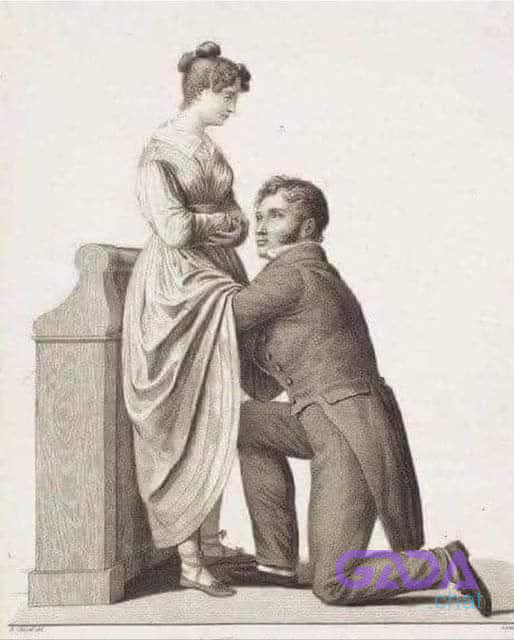In antiquity, women who had anxiety, mood swings and depression were sent by their husbands to the doctor, who diagnosed them with a disease called ′′ hysteria ". Their treatment was based on a ′′ pelvic massage ′′ with the purpose of achieving hysterical paroxysm, now known as orgasm.
There were so many women who began to attend consultations to have their ′′ treatment for hysteria ′′ that doctors at the end of the workday were exhausted and their hands were shaky; that's why they decided to invent a useful device that produced rhythmic vibrations and that hysterical paroxysm was achieved easier and faster in the patient without the need for the common manual massage: this is the origin of the vibrator. At that time it was seen as a healing artifact, even the wealthiest women had them in their homes for when they felt ′′ bouts of hysteria ".
For more, read my friend Rachel Maines' book on this.
Copied.
There were so many women who began to attend consultations to have their ′′ treatment for hysteria ′′ that doctors at the end of the workday were exhausted and their hands were shaky; that's why they decided to invent a useful device that produced rhythmic vibrations and that hysterical paroxysm was achieved easier and faster in the patient without the need for the common manual massage: this is the origin of the vibrator. At that time it was seen as a healing artifact, even the wealthiest women had them in their homes for when they felt ′′ bouts of hysteria ".
For more, read my friend Rachel Maines' book on this.
Copied.
In antiquity, women who had anxiety, mood swings and depression were sent by their husbands to the doctor, who diagnosed them with a disease called ′′ hysteria ". Their treatment was based on a ′′ pelvic massage ′′ with the purpose of achieving hysterical paroxysm, now known as orgasm.
There were so many women who began to attend consultations to have their ′′ treatment for hysteria ′′ that doctors at the end of the workday were exhausted and their hands were shaky; that's why they decided to invent a useful device that produced rhythmic vibrations and that hysterical paroxysm was achieved easier and faster in the patient without the need for the common manual massage: this is the origin of the vibrator. At that time it was seen as a healing artifact, even the wealthiest women had them in their homes for when they felt ′′ bouts of hysteria ".
For more, read my friend Rachel Maines' book on this.
Copied.
1 Commenti
0 condivisioni
123 Views
0 Anteprima



